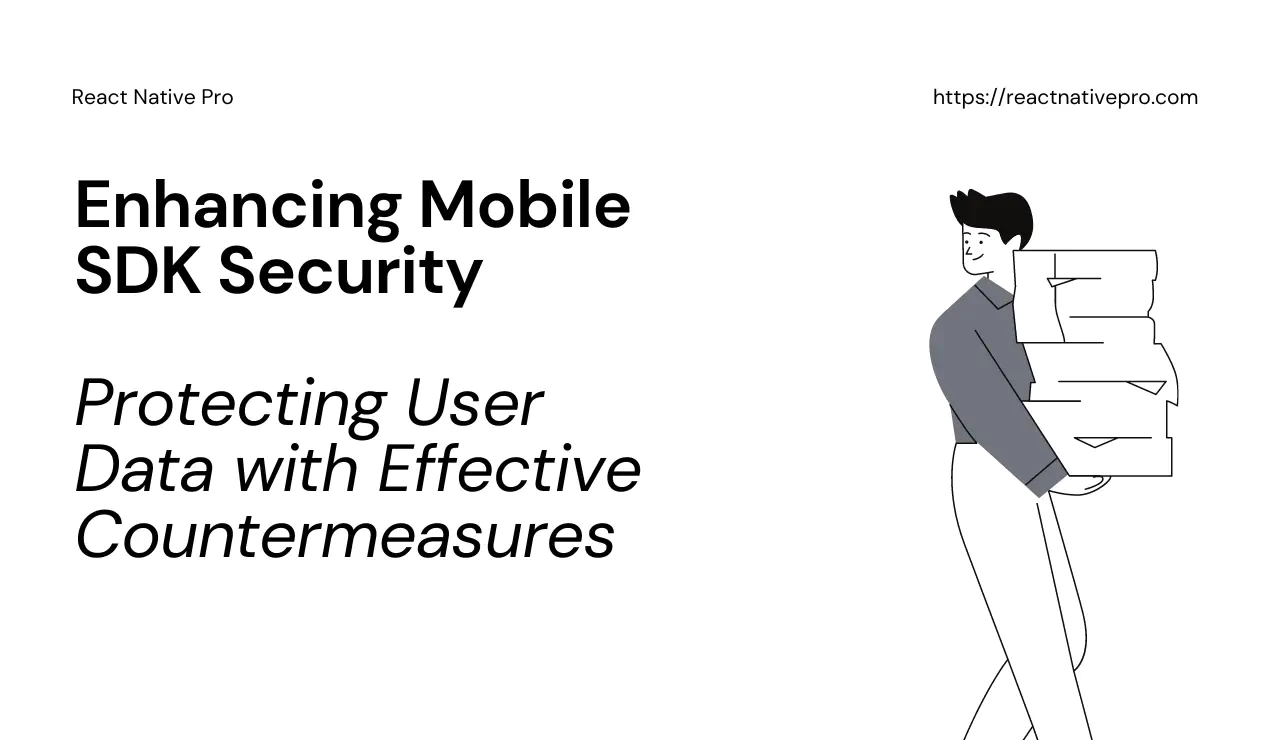Navigating the Hidden Risks of Mobile SDKs
Posted in security, mobile security, mobile sdks, mobile defense on August 26, 2024 by Hemanta Sapkota ‐ 5 min read

Mobile app development relies heavily on Software Development Kits (SDKs) to rapidly integrate native functionalities like vpn services, location tracking, digital wallets, and in-app purchases. While SDKs are essential tools, they can introduce significant security risks, especially when mishandling user data. Understanding these risks and implementing effective countermeasures is crucial for maintaining app security and user trust.
The Critical Role of Mobile SDKs
Mobile SDKs are vital for modern app development. They provide pre-built libraries and tools that:
• Faster Development: SDKs provide ready-made solutions for common features like push notifications and payments, allowing developers to focus on unique aspects of their apps.
• Native Feature Access: SDKs offer seamless integration with device features like cameras and GPS, essential for fully utilizing hardware capabilities.
• Third-Party Integrations: They simplify the inclusion of services like social media logins and cloud storage, enhancing user experience.
• Consistency and Security: Established SDKs ensure reliable performance across devices and often include built-in security features to meet regulatory standards.
However, developers must also be aware of the security challenges that come with using SDKs.
The Hidden Risks of Mobile SDKs
SDKs frequently require extensive permissions, granting them access to sensitive user data, including location, contacts, and device identifiers. While numerous SDKs are developed for legitimate purposes, concerns exist regarding SDKs that potentially misuse these permissions, collecting and sharing data for purposes beyond their stated intent.
A significant issue involving SDKs is their potential role in creating residential proxy networks. In such instances, SDKs integrated into popular mobile applications may convert users’ devices into proxy nodes without the users’ full awareness or explicit consent. This practice can compromise user privacy and consume bandwidth. Additionally, it introduces broader security risks, as users’ IP addresses could potentially be utilized for unauthorized activities.
Illustration of a residential proxy network
Counter Mechanisms for Enhanced SDK Security
To protect against these risks, organizations must adopt robust countermeasures. Here are three key strategies:
Always Demand Open-Source Code from Vendors
• Transparency is Key: Insist that SDK vendors provide open-source code. This level of transparency allows developers and security experts to thoroughly examine the SDK’s code for any potential security flaws or hidden malicious components.
• Community Audits: Open-source code can be reviewed by the broader security community, increasing the likelihood that any vulnerabilities will be quickly identified and addressed.
Request Penetration Testing Reports
• Security Validation: Before integrating any SDK, request comprehensive penetration testing reports from the vendor. These reports demonstrate that the SDK has undergone rigorous testing to identify and address any security vulnerabilities.
• Ongoing Assessment: Regular penetration testing should be part of the SDK’s maintenance process, ensuring that new vulnerabilities are identified and patched as they arise.
Obtain Security Vulnerability Reports
• Track Record of Security: Ask for detailed security vulnerability reports to understand the SDK’s history of security issues. This will provide insights into the vendor’s responsiveness and commitment to maintaining a secure product.
• Regular Updates: Ensure that the vendor provides ongoing updates to their security vulnerability reports, signaling a proactive approach to security management.
Apple and Google’s Role in Security
Apple and Google play a key role in protecting end users by enforcing stringent security standards for SDK publishers.
Third-party SDK Requirements
Apple, in particular, has recently introduced significant privacy updates to enhance user protection. According to Apple’s latest privacy updates, starting March 13, 2024, developers uploading new or updated apps to App Store Connect must include detailed reasons in their app’s privacy manifest for using certain APIs, especially those linked to third-party SDKs. These updates ensure developers clarify how these APIs and SDKs are used, providing additional transparency and privacy protection for users.
Moreover, beginning May 1, 2024, Apple will require developers to include approved reasons for using listed APIs when uploading new or updated apps. If a third-party SDK is added that falls under these new guidelines, developers must ensure the SDK includes a privacy manifest and necessary signatures to meet Apple’s privacy standards. These measures are designed to help developers better manage software dependencies, secure user data, and maintain high privacy standards across all apps on the App Store.
These efforts by Apple, combined with Google’s rigorous app review processes and regular audits of SDKs on the Play Store, significantly contribute to a secure and trustworthy app ecosystem. However, developers must remain vigilant about the security challenges that can arise when using SDKs, ensuring all components of their apps adhere to these high standards.
BlockMesh.xyz: A New Approach to SDK Security
Ohad Dahan, the founder of BlockMesh, is developing a new approach to mobile SDK security. BlockMesh provides a transparent, open-source platform that enables users to monetize their unused bandwidth while protecting their data. In contrast to some traditional SDKs that may operate without explicit user consent or deeply buried in the terms of service, BlockMesh emphasizes transparency and user control. The platform aims to give users full visibility and authority over their data usage.
Learn about BlockMesh here.
Conclusion
Mobile SDK security is a critical concern for any organization developing or deploying mobile applications. By demanding open-source code, requesting penetration testing reports, and obtaining detailed security vulnerability reports, organisations can significantly reduce the risks associated with integrating third-party SDKs. These countermeasures not only protect user data and privacy but also help maintain the integrity and reputation of your applications.
comments powered by Disqus